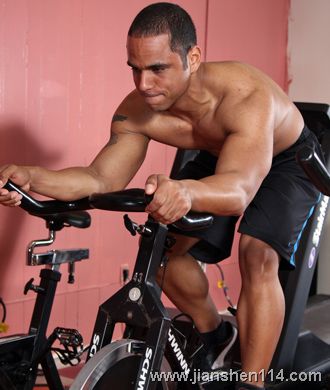
Recovery after exercise is essential for your overall health and performance.
Many people overlook the importance of post-exercise recovery, which can lead to prolonged fatigue and reduced energy levels. This not only affects daily productivity but also diminishes the benefits of your workout. Worse still, pushing your tired body into physical activity increases the risk of injury. In this article, we’ll share practical tips on how to recover effectively after a workout and help your body bounce back faster.
Don’t skip the cool-down
After finishing a workout, many people just pack up and leave. That’s a mistake. It's important to spend 10–15 minutes doing a proper cool-down. This can include light jogging or static stretching, which helps your heart and lungs gradually return to their normal state. During intense exercise, your cardiovascular system works hard, pumping large amounts of oxygen to your muscles. If you stop suddenly, your heart rate drops rapidly, reducing oxygen delivery and making it harder for your body to remove metabolic waste. A proper cool-down ensures a smoother transition and helps prevent dizziness or muscle soreness. For less intense workouts like walking, a cool-down might be optional, but it's always better to be safe.
Massage for recovery
Massage is one of the most effective ways to aid recovery. Gentle massage improves blood circulation, speeds up the healing of minor muscle damage, and eases tension. Even small injuries that are hard to notice can be repaired naturally by the body, but massage helps accelerate the process. You can also try some gentle stretches, leg swings, or joint rotations to relax your muscles and joints. These simple actions can significantly reduce post-workout soreness and help you feel more refreshed.
Fuel your body properly
For many office workers, evening workouts are the main way to stay active. However, some people avoid eating after exercise to manage weight. While it’s true that overeating can counteract your efforts, skipping food completely isn’t ideal either. After any form of exercise, your body needs energy to recover. Eating a balanced meal with protein, carbs, vitamins, and minerals can support muscle repair and restore your energy. The timing and portion size should depend on your goals. If you're trying to lose weight, a light snack after exercise is fine. If you're training for fitness, eat enough to support your routine. Always aim to eat within 30 minutes after working out to maximize recovery.
Take a warm shower
A warm shower is a great way to relax after a workout. The temperature should be slightly higher than your body temperature—around 40°C is ideal. It helps improve blood flow, soothe your nervous system, and clean your skin by removing sweat and dirt. A warm bath can also help you feel more refreshed and speed up recovery. If you do low-intensity activities like jogging or walking every day, you don't need a full shower each time. A foot soak in warm water (between 40–42°C) for 15–30 minutes can also be very beneficial. It helps relieve fatigue and prepare your body for the next day.
Sleep is key to recovery
Finally, sleep is the most powerful tool for recovery. After an evening workout, try to go to bed about two hours later so your body can calm down and prepare for rest. Aim for 8–9 hours of sleep to speed up recovery. If you work out in the morning, taking a short nap in the afternoon can help you recharge. Keep your nap around 30 minutes to avoid grogginess. While napping is helpful, it's not mandatory. The best approach is to align your rest with your lifestyle and body needs. Don’t force yourself to follow strict rules—find what works for you and stick to a healthy, balanced recovery routine. Huai 'an Bst Trade Co., LTD , https://www.bstoral.com
![<?echo $_SERVER['SERVER_NAME'];?>](/template/twentyseventeen/skin/images/header.jpg)